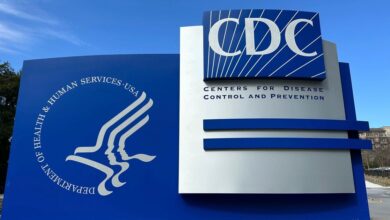Americans don’t think bird flu is a threat, study suggests
The lack of public awareness and concern regarding bird flu, also known as highly pathogenic avian influenza (HPAI), could potentially hinder efforts to contain the virus and prevent a larger-scale public health crisis. A recent editorial in the American Journal of Public Health, led by researchers from the CUNY Graduate School of Public Health and Health Policy (CUNY SPH), highlights the need for increased education and engagement on the topic.
The research team, including experts like Assistant Professor Rachael Piltch-Loeb, Associate Professor Katarzyna Wyka, and Dean Ayman El-Mohandes, conducted a survey of U.S. residents to assess their knowledge and attitudes towards HPAI. The results revealed troubling gaps in understanding, with many respondents unaware of basic food safety practices that could reduce the risk of HPAI infection.
For example, over half of the participants did not know that pasteurized milk is safer than raw milk, despite the fact that cooking meat at high temperatures can eliminate harmful bacteria and viruses like H5N1. Additionally, a significant portion of respondents expressed reluctance to make dietary modifications or receive a potential vaccine for H5N1, even if recommended by health authorities.
Interestingly, political affiliation and geographic location played a role in shaping attitudes towards vaccination and dietary changes. Individuals identifying as Republicans or Independents were less likely to support these public health measures compared to Democrats. Similarly, rural Americans, who are more likely to work in or near livestock industries, were less receptive to preventive measures than urban residents.
Lead author Rachael Piltch-Loeb emphasizes the importance of tailored health communication strategies to address these disparities. Collaborating with agricultural leaders, farm communities, and food processing companies will be crucial in promoting awareness and compliance with recommended practices. However, challenges may arise in reaching undocumented agricultural workers who are at direct risk of exposure to the virus.
The study underscores the need for proactive efforts to engage the public and mitigate the potential impact of HPAI. By addressing knowledge gaps, dispelling myths, and fostering a culture of prevention, we can better safeguard public health and minimize the threat posed by bird flu.
For more information, you can refer to the original study published in the American Journal of Public Health. (Source: CUNY Graduate School of Public Health and Health Policy)




